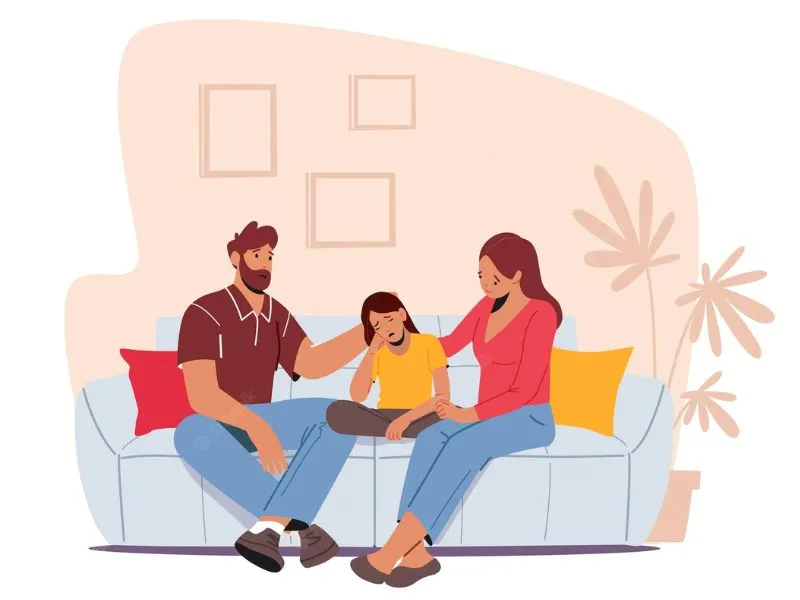Mental Health of a child is somewhat connected with their parents' mental health. Infants are born as a ‘blank slate of mind’; as parents, they need to take care that whatever they will do, will automatically reflect on their Child’s Health and Behavior, such as, the way they talk with each other, aggression levels and much more.
Steps to support Children Mental Health
1. Model healthy coping skills: As said, for any problem, there is a solution to it, in professional terms known as coping mechanisms. Modeling refers to observing one's behaviors and performing the same. As parents, healthy behavior must be performed in front of the child, so that they can use it as their coping mechanisms when they are stuck in the same situation.
2. Watch for Behavior changes: As developmental stage progresses, behavior of a child also changes. Parents need to take care of the behavioral changes that a child is exhibiting, that can be internalizing or externalizing, however, if one notice that the child has become more withdrawn or isolated from their friends, family or daily routine, it may be a sign that they’re experiencing a situation or feeling that they cannot process on their own, thereby needs support for the same.
3. Keep open and honest communication: It’s important that parents need to communicate with their child on a regular basis. Communication with the child should be open and honest, as well as transparent, so that the child also does the same, thereby improving the mental health of a child.
4. Let them know that they are loved and supported: As children grow, they want to be loved by everyone, especially their parents or caregivers, so as parents, the most important task for the parents is to tell them that they are loved by each and every member of the family. Parents should always be available for their support, whenever they want, so that they should not depend on others for support.
5. Provide positive feedback and encouragement: Providing feedback is a healthy mode of communication. As children do any task or behavior, they want feedback for that, which can be positive or negative. Positive feedback will encourage the child to repeat a particular task or behavior again, whereas, negative feedback will discourage the child and thereby affect the child’s mental health. Parents, thus, should provide the feedback, depending upon the nature of task or behavior.
6. Seek professional help, if needed: As a parent, one of the crucial skills is to recognize the child’s needs. There can be times when it can be overwhelming or frustrating to try to handle a child's behaviors or respond appropriately to their emotions. It’s understandable that there is a lot of stigma attached in our society related to seeking mental health, so parents are afraid to seek mental health.
Conclusion
Parent’s foremost responsibility is to take care of their children’s physical, mental, emotional and overall well-being, therefore it is crucial to discover what best can be done to support children’s overall mental health. At Solh Wellness, we work to provide people with proactive mental health solutions before their situation worsens. To proactively support your mental health, try out several techniques and make self-care a priority in your daily life. Install the Solh Wellness App to start experiencing the transformation.



